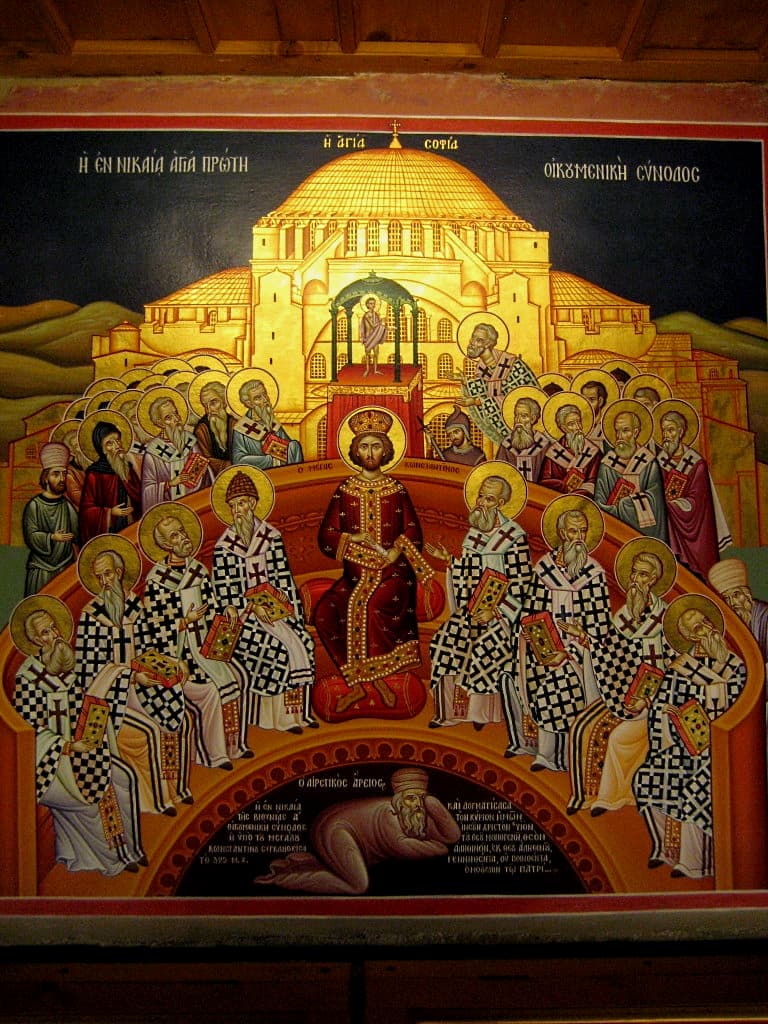As the Catholic Church celebrates the 2025 Jubilee, it also marks the 1700th Anniversary of the Ecumenical Council of Nicaea.
The first Ecumenical Council took place in 325, and went against the Arian heresy, which denied the true divinity of Jesus Christ.
This is why the Nicene Creed is read every Sunday at Mass – saying Jesus is “God from God, light from light, true God from true God, begotten not made, consubstantial with the Father.”
On Thursday, the International Theological Commission published “Jesus Christ, Son of God, Saviour: 1700th Anniversary of the Ecumenical Council of Nicaea (325-2025).”
The statement says the faith of Nicaea is the faith common to all Christians.
“The year 2025 is therefore an invaluable opportunity to underline that what we have in common is much stronger, quantitatively and qualitatively, of what divides us: All together, we believe in the Trinitarian God, in Christ, true man and true God, salvation in Jesus Christ, according to the Scriptures read in the Church and under the willing of the Holy Spirit,” the statement says.
“Together, we believe in the Church, baptism, the resurrection of the dead and the eternal life. The Council of Nicaea is especially venerated by the Churches of the East, not simply as a council between others or as the first of a series, but it is the Council par excellence,” it continues.
The document from the International Theological Commission said 2025 is the opportunity for all Christians to celebrate the faith that the Council made possible to express.
“Ecumenism theological theory, legitimately, focuses its attention and its efforts on the unresolved knots of our differences, but without doubt it is no less fruitful, if not more fruitful, to celebrate together this anniversary, to advance towards the re-establishment of full communion among all Christians, so that the world believes,” the statement says.
The statement also spoke about the fact that Easter will be celebrated on the same day in both the Western and Eastern Churches, and pointed out the Council of Nicaea also tried to establish a common date of Easter in the Church.
“The divergence of Christians about the most of their calendar creates pastoral discomfort within communities, to the point of dividing families, and scandal among non-Christians, thus damaging the witness to the Gospel,” the statement says.
“For this reason, Pope Francis, the Ecumenical Patriarch Bartholomew and other heads of Churches many times expressed the desire for a date to be established for the celebration of Easter,” it continues.
“On this question the Catholic Church remains open to dialogue and to an ecumenical solution. Already in the appendix of the Constitution Sacrosanctum Concilium, the Vatican Council II had no objection to the introduction of a new timetable, and stressed that this should have been achieved ‘with the consent of of those who are interested, especially the brothers separated by communion with the Apostolic See’,” the statement says.
The International Theological Commission noted that it is in the context of the Council of Nicaea that the Church chooses decisively to separate from the date of Passover, to distance Christianity from Judaism.
“Beyond the question of the calendar, it would be desirable to emphasize the relationship between Easter and Pesach [Jewish Passover] more and more, both in theology and in homilies as well as in catechesis, to achieve a broader and deeper understanding of the meaning of Easter,” the document says.
Follow Charles Collins on X: @CharlesinRome











